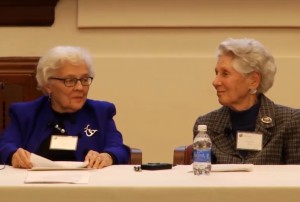Edris Rice-Wray Papers Open to Research
The Center for the History of Medicine is pleased to announce that the Edris Rice-Wray papers, 1937-1983 (inclusive), 1960-1970 (bulk) are now open to research.
Edris Rice-Wray was born in 1904 in New York City, New York and received her bachelor’s degree from Vassar College in Poughkeepsie, New York, in 1927. She went on to attend Northwestern University Medical School and receive her M.D. in 1932 with a focus on public health work.
In 1948, Rice-Wray went to Puerto Rico as a health district director. In 1950, she was appointed Director of the Public Health Training Center, a Professor of Preventive Medicine at the University of Puerto Rico, and as Medical Director of the Puerto Rico Planned Parenthood. During her time in Puerto Rico, Rice-Wray collaborated with John Rock (1890-1984) and Gregory Pincus (1903-1967) on the trials of oral contraceptives on Puerto Rican women.
In 1957, Rice-Wray joined the World Health Organization and moved to Mexico to work as Medical Officer for Mexico, Cuba, Haiti, and the Dominican Republic. In 1958 she founded and became the President of the Asociación Pro-Salud Maternal, the first family planning clinic in Mexico. She held this position until 1972 when she became Honorary President and Chief Technical Consultant for the Asociación. During the 1970s, she moved from Mexico City to Cholula in Puebla, Mexico, where she continued to work in reproductive medicine and held a teaching position at the University of the Americas Puebla.
Rice-Wray was married and had daughters. She died in 1990 in San Andres Cholula, Puebla, Mexico.
The collection consists of records created or collected by Edris Rice-Wray in the course of her career working with family planning institutions, primarily in Mexico including letters and enclosures from individuals and groups, including corporations, government offices, and academic institutions. Topics include conferences, professional visits to Rice-Wray’s Mexico City clinic, clinical trials of various types of contraceptives, the activities of the International Planned Parenthood Federation, and the politics of birth control in Mexico. Also included are records of publications Rice-Wray authored and co-authored in various stages of preparation, including final reprints.
Papers are in English and Spanish.





